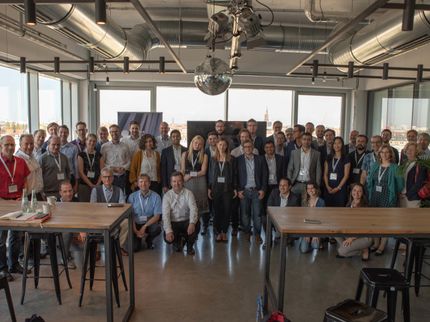Asia-Pacific continues to drive global healthcare investment, innovation and growth ASEAN
A US$150 billion healthcare market by 2017, says Frost & Sullivan
Advertisement
The dynamic healthcare landscape across the Asia-Pacific is expected to continue its strong growth momentum in areas of new entities, investments and products, with the accelerated evolution driven by innovation and opportunities afforded by ASEAN. Healthcare delivery across both primary care and hospital services are going to be the mainstay of growth.
“Overcrowded public hospitals, urbanisation, disease and lifestyle trends, increasing private health insurance coverage and awareness on the importance of health management will see the private hospital market in Singapore grow at a rate of 13% between 2015 to 2020,” says Rhenu Bhuller, Senior Vice President, Healthcare, Frost & Sullivan Asia Pacific.
“With the aim to shift patient loads from hospitals to primary care, governments in South East Asia are driving initiatives to create a more robust primary healthcare sector, even while they focus on improving basic healthcare access and services,” Bhuller added.
The private primary healthcare services market in Singapore is expected to exceed US$3 billion by 2020 and provides opportunities across the healthcare value chain.
Other major trends that will impact the healthcare sector in 2015 are:
- 2015: Regulatory Harmonisation: The potential synergy for certain segments such as medical devices and consumables within the ASEAN region will potentially see more manufacturing investments taking place and increasing the flow of products and services around those regions. With strong support from governments around the region, this development is likely to take place in stages from the middle of the year. Health technology assessments in South East Asian countries will also start to be implemented and will have an impact on the pricing and availability of newer healthcare products.
- 2015: Stronger Regulatory Crackdown: With the market being more open and ease of securing healthcare products commercially, there is also expected to be a greater regulatory focus on policies and practices linked to protecting the consumers. There would be an increasing application of healthcare education and prescribing responsibility for healthcare professionals, where healthcare diagnostics or products prescribed are influenced by the best interests of the consumer and less by unethical marketing practices.
- 2015: Microsegmentation Strategies: With increasing urbanisation, healthcare delivery in the public sector is challenged with public hospitals in urban areas especially overburdened. This growing middle class with varying levels of healthcare needs and affordability will lead to tiered services offerings under the same umbrella hospital group to cater to different customer segments with varying levels of affordability.
- 2015: Pharmacies Undergo Transformations: One of the biggest developments in the healthcare scene in Asia will be the evolution of pharmacies as a channel for diagnostics, compliance and treatment. This will include patient compliance, preventative healthcare and over the counter treatments which can lead to the development of strong community health and ease the load on emergency rooms and healthcare practitioners, and could have a longer term impact on reducing healthcare costs.
- 2015: Telecoms Launch Home Health Platforms: The ability to reach consumers will be a key driver for healthcare manufacturers and providers. Telecommunication companies are one of the potential platform partners who can address this need by leveraging brand name and existing services to become an ideal home health integrator, bringing healthcare monitoring to the home. One of the largest transformations will be the merger of healthcare and technology, be it home healthcare, home monitoring or wearable devices. This has happened in countries such as the US and South Korea and is expected it will take off in countries like Singapore, Malaysia and Indonesia next.
- 2015: A Blockbuster Year for Mergers and Acquisitions: 2015 is expected to see even more mergers and acquisitions in the healthcare space, with deals to eclipse the transaction values of 2014. Biotech companies will be more bullish in terms of product research and development. Additionally, there is likely to be more Asia-focused mergers and acquisitions, leading to healthcare companies that that can become big brands in Asia and ultimately globally.
“The industry is mired in a transitional phase where traditional global markets have been exhausted for growth, yet the opportunities for new services and care (ambulatory/mobile/home care) lack the appropriate level of development and infrastructure to seamlessly launch novel solutions. However, the Asia Pacific region (ex-Japan) will continue to provide double digit growth in 2015 at 11% compared to the global average of 5%,” Bhuller added.


























































